Why is the “dark side” sometimes more fun? Here is an example using 19th century political medalets.
Although it has long been lost in the dust bin of history for most people, the Democratic Party was not totally aligned behind William Jennings Bryan in 1896. A splinter group called The National Democratic Party ran a separate ticket which became known as the "gold Democratic Party." Their presidential candidate was 79 year old John Palmer and his running mate was Simon Buckner who was a former Confederate Army general.
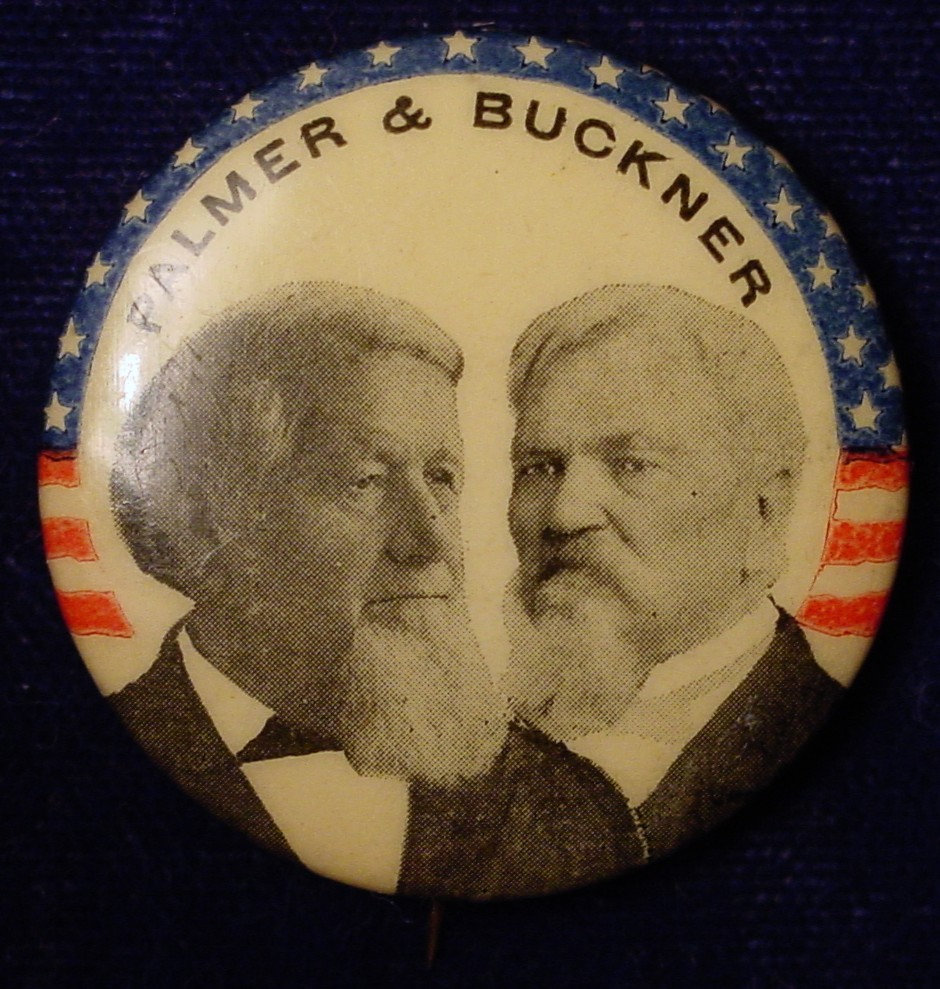
Palmer had one of the most interesting political careers in history. In 1856 he was a delegate to the first Republican Party convention that nominated John C. Fremont for president.
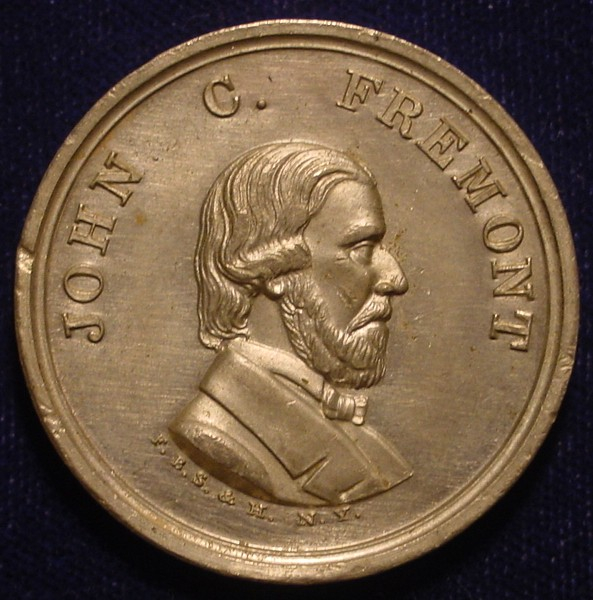
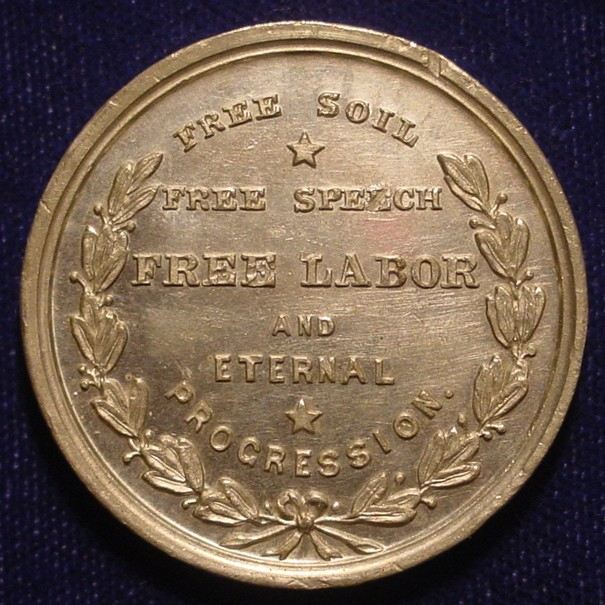
In 1860 he was an elector in the Electoral College who voted for Abraham Lincoln.
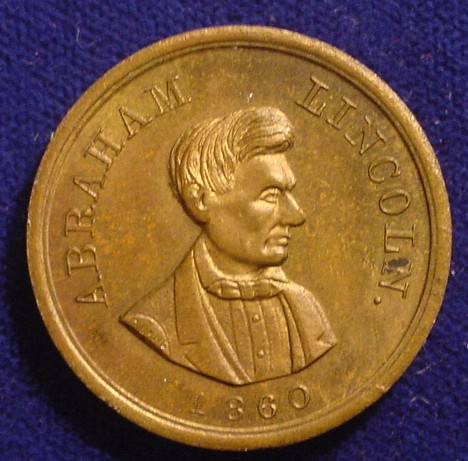
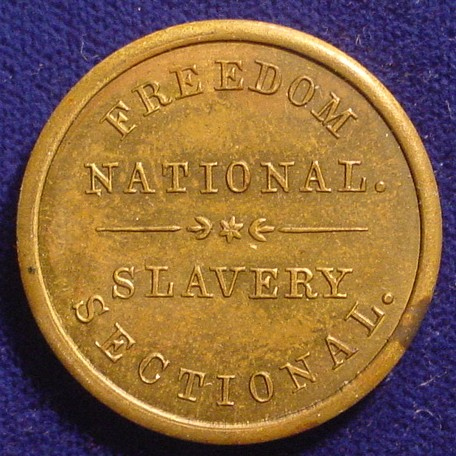
In February 1861 he participated in a "Peace Conference" were northern and southern politicians tried to come to an agreement to avoid the Civil War. Most people, including Abraham Lincoln, viewed that gathering as a waste of time that was mainly aimed toward giving the South a chance to gear up for the war. (This Civil War token, which is generally cassified as a "copper head" piece was issued during that time. This is viewed as a very scarce token that comes in several different metals.)
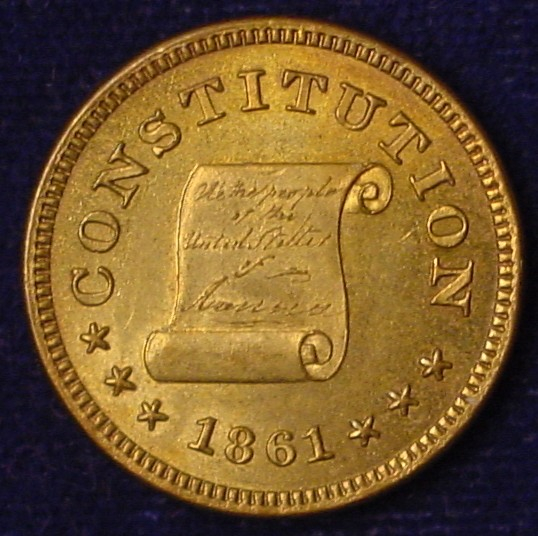
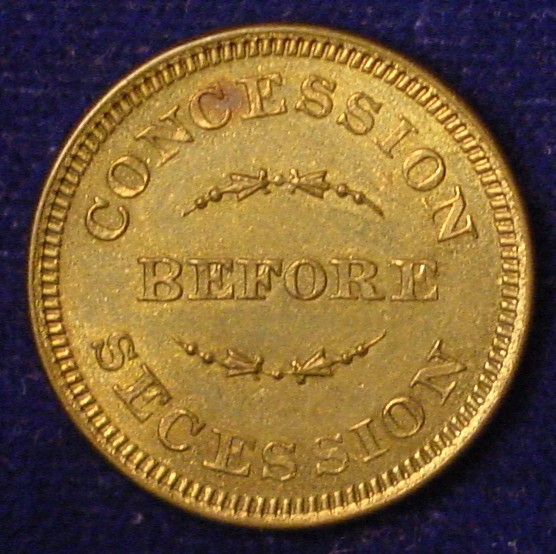
Palmer then enlisted with the Illinois Volunteers where he entered the service as a colonel. During the war he rose to brigadier general and ultimately major general before he was mustered out in 1866. Soon after that he was elected as the Republican Party's candidate for Governor of Illinois.
In 1872 he broke with the main body of the Republican Party and supported Horace Greeley for president as the Liberal Republican Party and Democratic Party candidate.
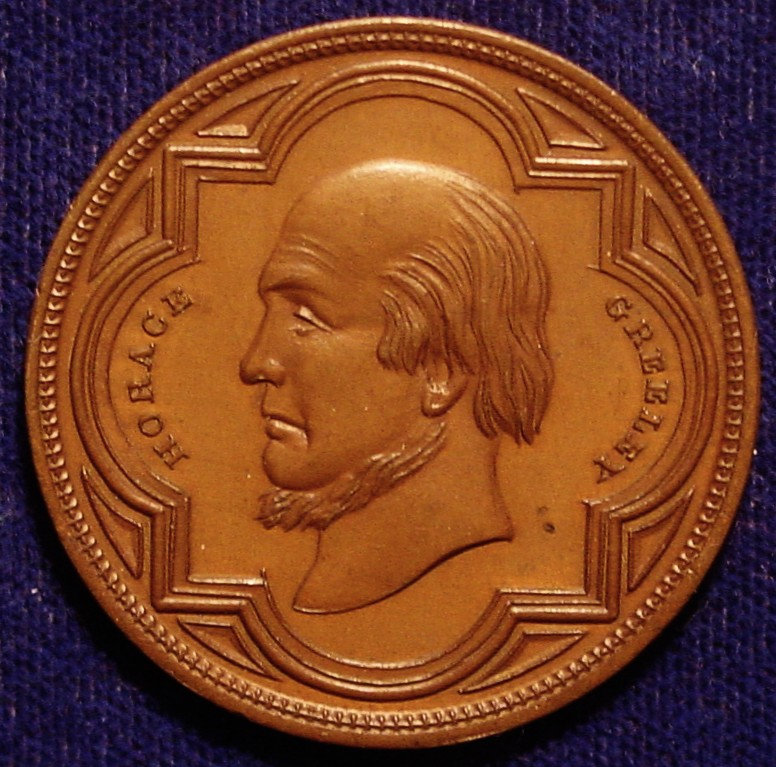
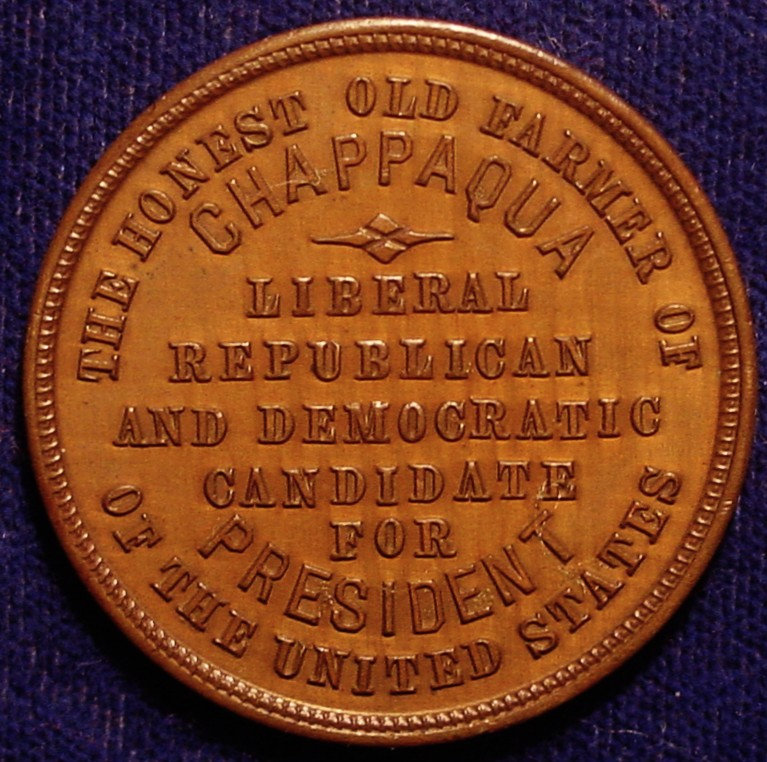
This splinter group was opposed to the re-election of U.S. Grant because of the corruption that was rampant in his administration.
(Here a rare and unusual Grant piece that is made of leather. Grant once worked in his father's tannery, and his 1872 running mate, Henry Wilson, had once been a cobbler.)
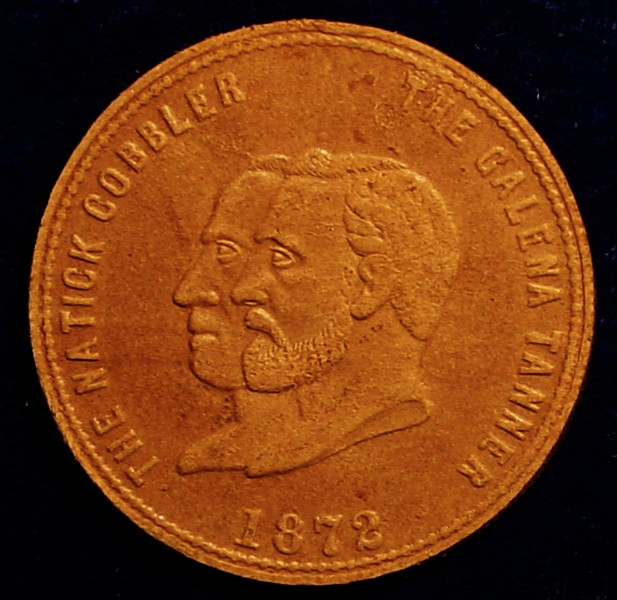
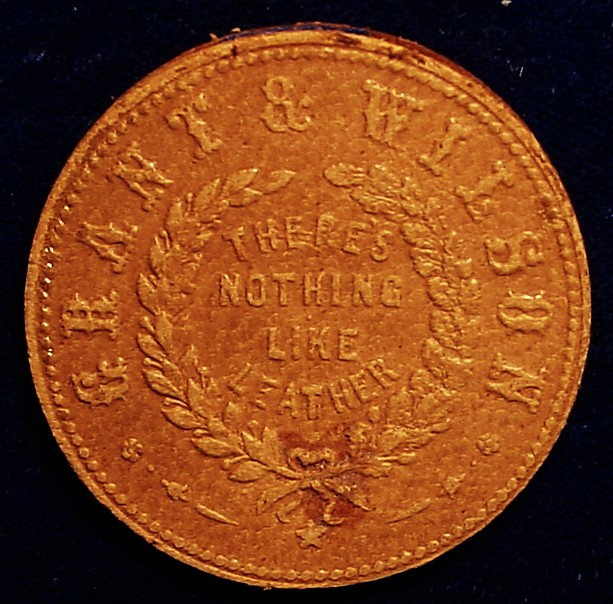
In 1876 he supported Democratic Party candidate, Samuel J. Tilden, for president.
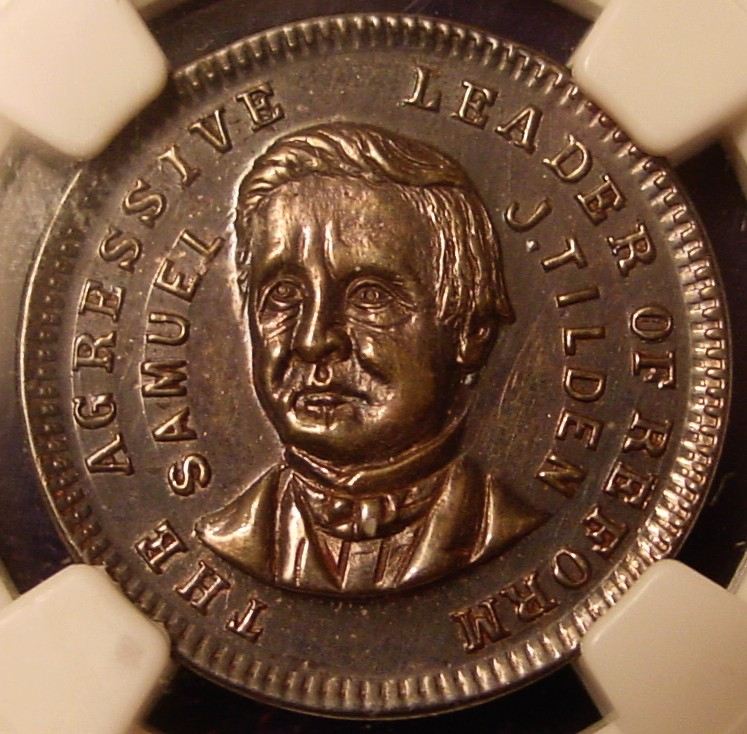
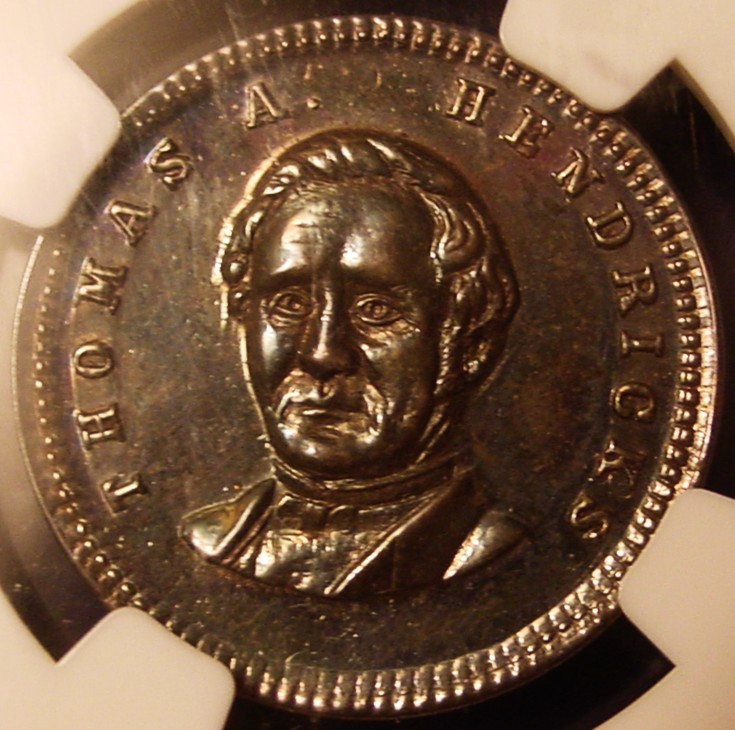
In 1884 he was a delegate to the Democratic Party convention where he supported Grover Cleveland. And finally from 1891 to 1897 he was a Democratic Party United States senator.
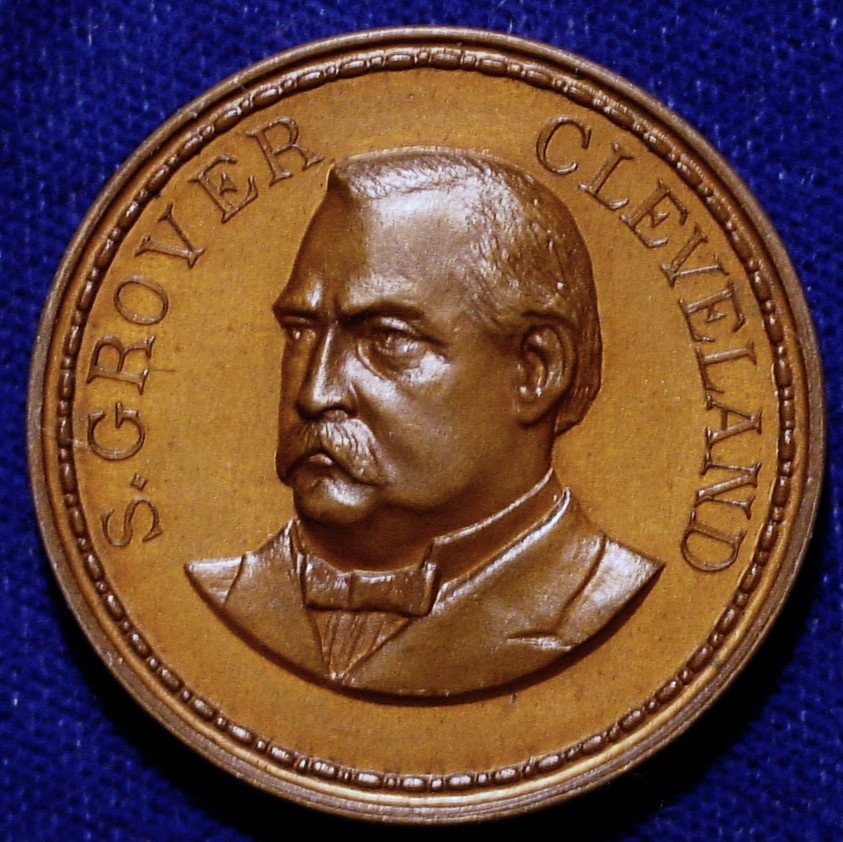
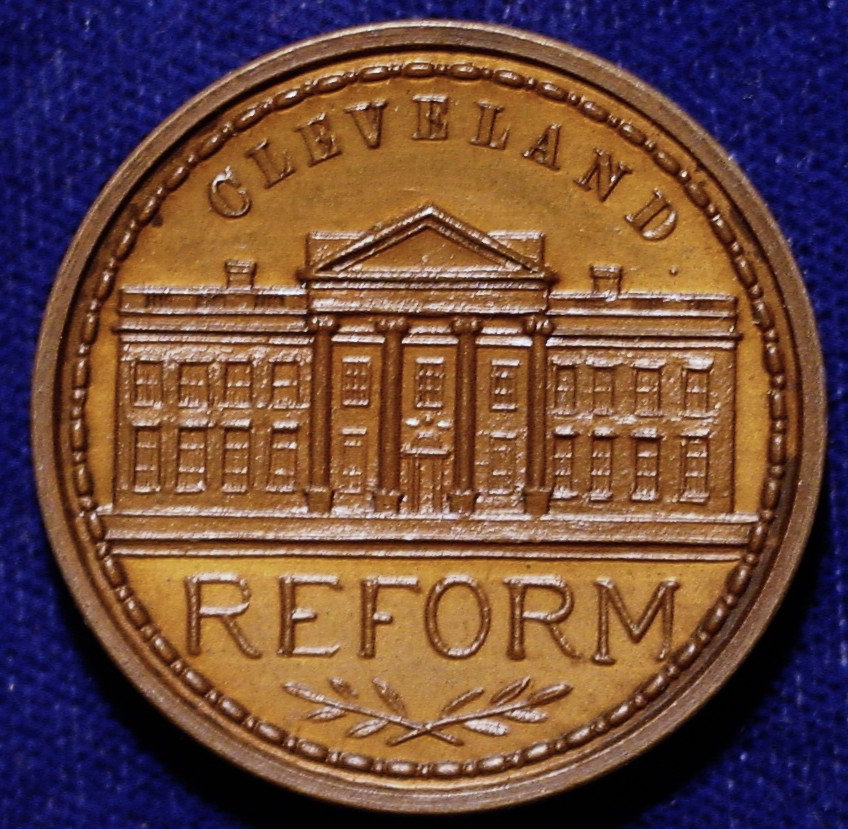
In 1896 Palmer opposed the free silver policies of William Jennings Bryan and was nominated to oppose him as a Gold Democratic Party candidate. (The silver colored clock in back of Bryan is set at "16 to 1." This is a scarce button.)
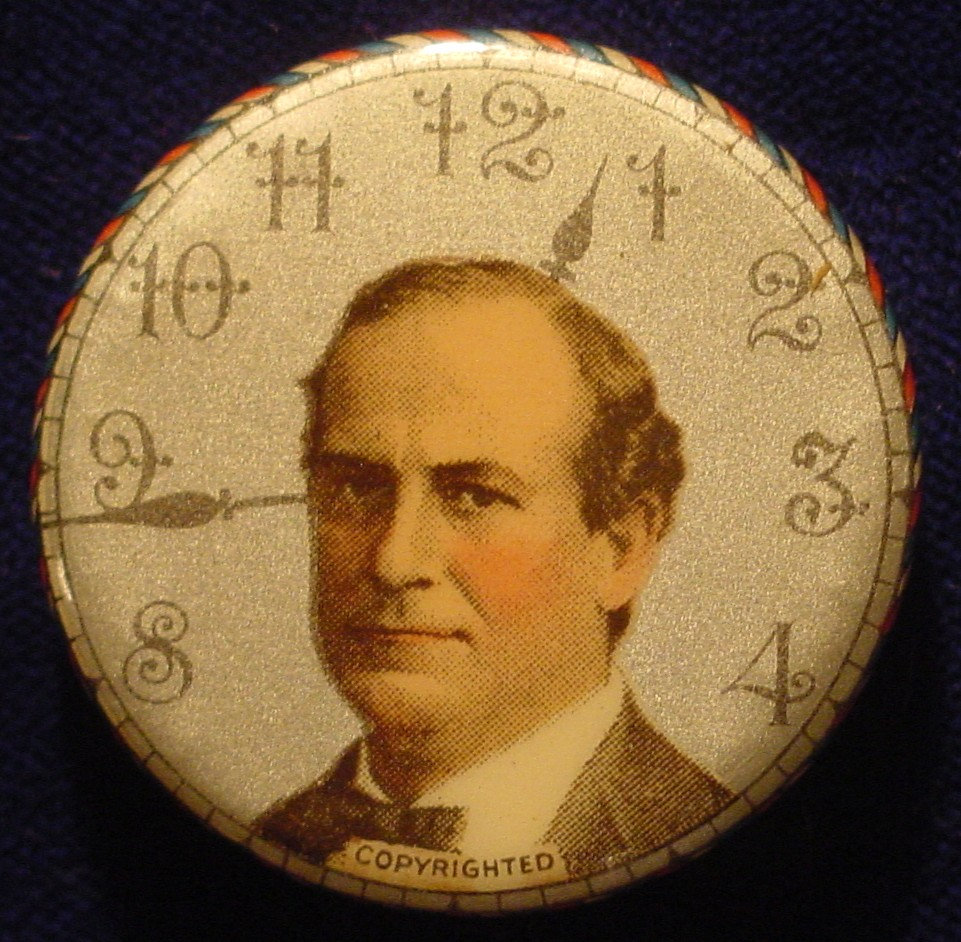
This group represented the conservative wing of the Democratic Party, which supported the Gold Standard which was consistent with outgoing president, Grover Cleveland’s, views. Palmer won only 1% of the popular view and retired from politics. He died in 1900.
Palmer was a man who went from one political party to another in support of his convictions. Although becoming such a gadfly would be almost impossible today, in retrospect you have to admire his honesty.
Comments
Interesting story ... and interesting items I haven't seen before!
Great post! I enjoyed reading about the history.
ANA-LM, CWTS-LM, NBS, TAMS, ANS
I thought the dark side was a reference to foreign coins. Not important though, exonumia is hard to beat when it comes to variety and the ability to build an interesting, themed collection.
Those are nice examples.
Most of us known so little about medals and tokens, that almost everything is new and fascinating - not boring like 1804 dollars!

Bill, great post. Glad you haven’t lost your enthusiasm for posting cool stuff here.
Great history lesson. Grant's story is almost sad. His administration was corrupt, but he did not mean to be from what I have read. He was too trusting of "friends" who really weren't friends, but corrupt shysters. He was responsible as he was in charge, but maybe the job was more than he could handle.
@BillJones ...Very interesting political history.... These tokens were great items that have served as historical memento's of the past. I wish they still used them today... Cheers, RickO
nice write up. i enjoy history.
"free soil, free speech, free labor."
i'm confused about the soil and labor. is he promoting communism or is this some sort of riff on his name "fremont" ... or?
Thanks for the free history lesson! Cool political memorabilia and medalets.
John C. Fremont was abolitionist, and the use of the word “free” in his campaign pieces was a word play on his name and a call for the end of slavery.
“Free Soil” refers to states and territories without slavery. It also refers to what would become the Homestead Act which was passed during the Lincoln administration. After working a plot of land, I think that that it was 150 acres, for a specified time, homesteaders were given the title to it.
Slaveholders were opposed to the Homestead Act. They believed that those who worked the land to gain title to it would oppose slavery for moral and economic reasons.
“Free Speech” is probably a reference to the Gag Order which in force in Congress during the 1830s. It invoked and immediate tabling of any petitions concerning slavery that were presented to Congress. The issue could not even be debated. It may have also referred to the actions of pro-slavery forces that shut down abolitionist newspapers. It may have even covered the severe beating that Preston Brooks gave to Charles Sumner on the floor of Congress.
“Free Labor” called for an end to slavery.
“Eternal Procession” met that the struggle would continue for as long as it took.
The pro-slavery forces understood the meaning of this all too well. It was why they came to refer to the Republican Party as the “Black Republican Party.”
John C. Fremont was a famous explorer and surveyor. Here is one of the most attractive medalets that were issued during his 1856 presidential campaign.
Yes, Hiram Ulysses Grant (His real name, which was somehow entered incorrectly when he entered West Point.) was example of a man who was either a spectacular success or a spectacular failure in just about everything he tried. He seldom seems to settle into the state of “happy mediocrity.”
He was drummed out of the Army in the early 1850s because of his drinking. He then tried his hand at farming at a place he called “Hard Scrapple” and ended up peddling firewood door to door to try to make ends meet. When that failed he worked as a clerk, under the supervision of a younger brother, at his father’s tannery shop. Grant hated the business probably because of his love of animals, especially horses.
Then along came the Civil War and glory. He succeeded magnificently during the war, although his drinking almost got him in trouble during siege of Vicksburg. It was said that Grant didn’t drink that much. The trouble was he could not hold his liquor very well; it only took a little to put him under.
After the war Grant’s presidency was brought down by scandal, in large part because he was too trusting of those around him. After the leaving the presidency, he lent is name to a brokerage business. Unfortunately his partner was crook who was running a Ponzi scheme. Grant lost everything.
It was about that this time that he discovered he had terminal cancer. Racing against time, with a boost from author, Mark Twain, Grant wrote his memoirs. The book was well written and huge success. It netted his family over $50,000 following his death.
Here is what was once one of the most popular and scarcer Grant medals. It seems like the price keeps going down every time one is sold these days.
Wow, very nice !!!
Thanks for the great history lessons.
It's amazing how much more fun that is learning the history from each individual coin / medal
Thank you for starting this historical coin post @BillJones
Great read start to finish, It just reminds you that things have changed a lot, but have not changed much. It is a dangerous time we live in and i really hope we are all able to keep the truths of history from being altered.
Yanny or Larel?
Neither or both, probable two recordings.
Best place to buy !
Bronze Associate member
wow, that grant medal is something else!